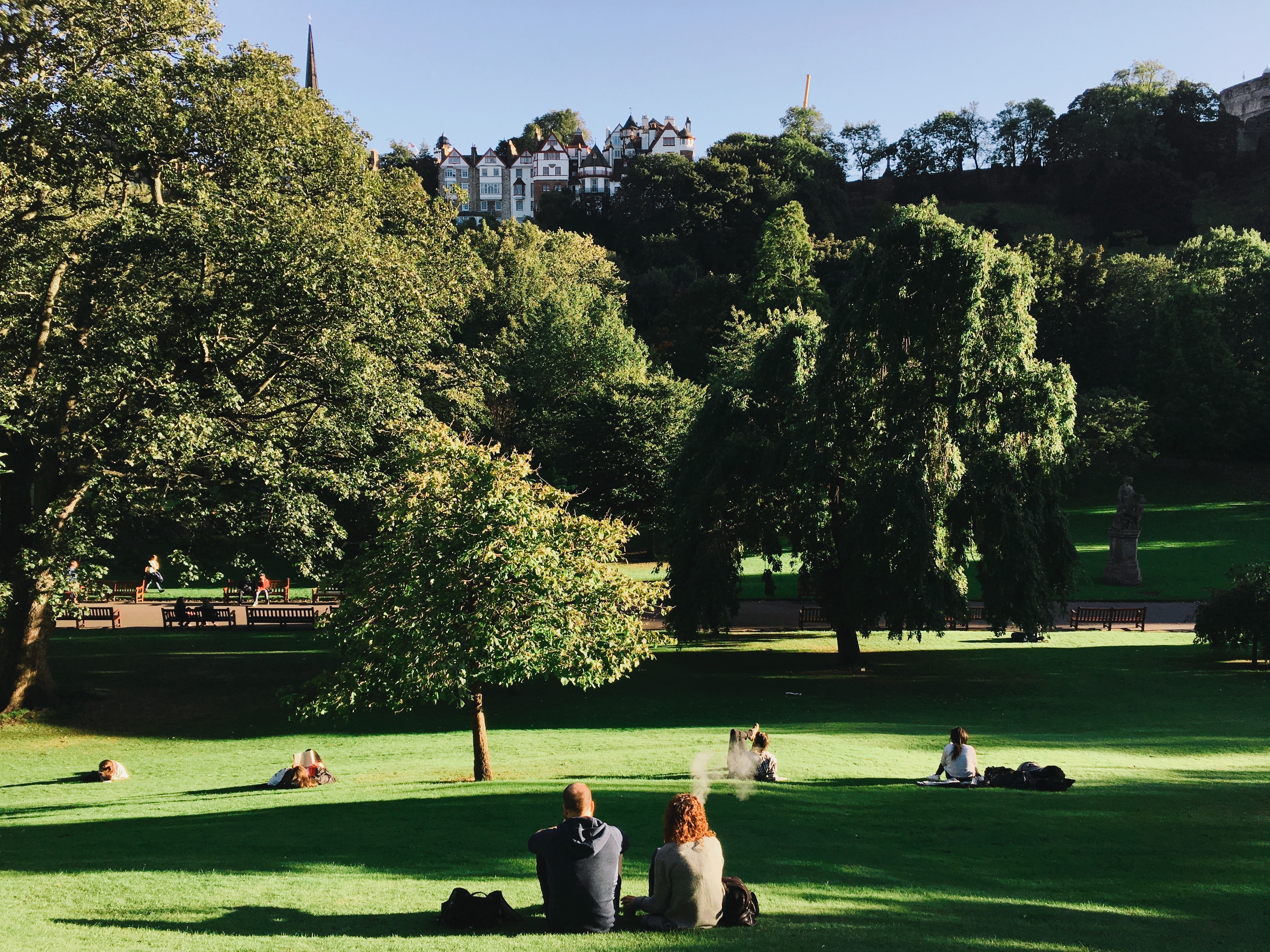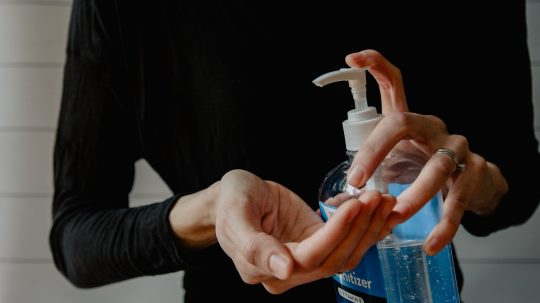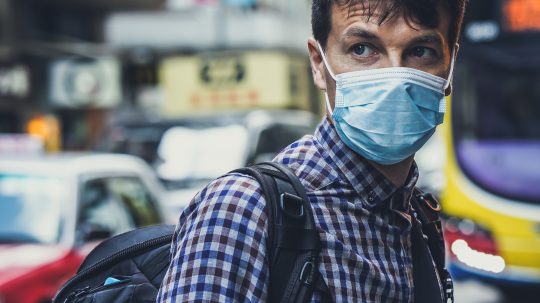As the weather heats up, so too is a fiery debate around whether or not Britain’s parks should stay open amid the coronavirus lockdown.
Reports of sunbathers and cyclists flocking to parks and public spaces, apparently flouting orders to stay at home as much as possible to stop the spread of Covid-19, have provoked outrage among some people.
Others have highlighted that park closures disproportionately affect families who lack gardens and face days spent sweltering in cramped, crowded accommodation – often the people from the most deprived backgrounds.
Some councils have decided to close their parks over the Easter weekend, while the government has threatened to ban all outdoor exercise if people flout its guidance on physical distancing.
EachOther examines how the decisions around whether or not parks should remain open impacts our rights.
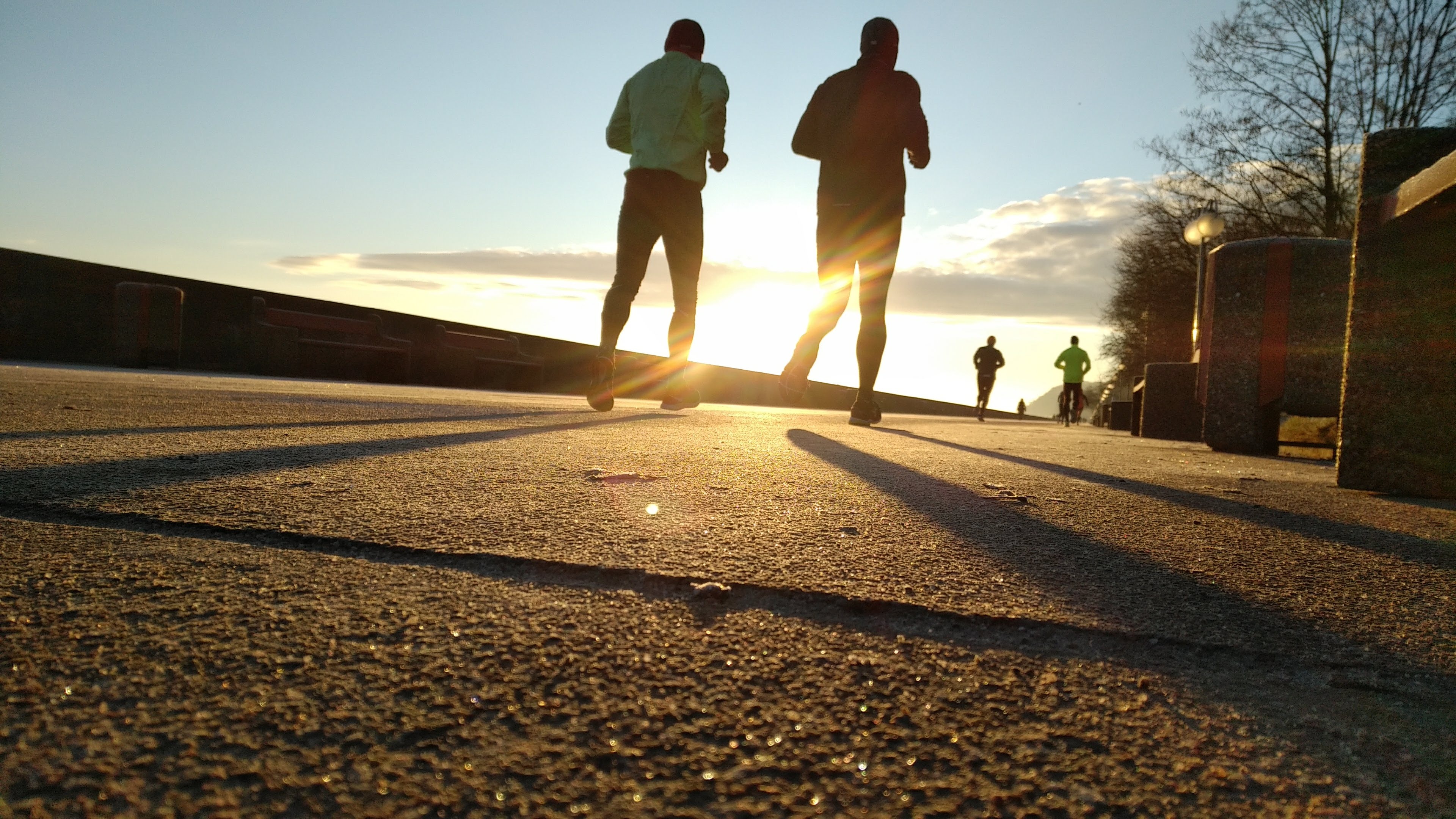
Credit: Unsplash
Public spaces and coronavirus: the latest
Parks are at present free to remain open under the current lockdown measures, which must be reviewed every 21 days and were due to be reviewed next week.
Local authorities have the power to decide to close their parks if they feel it is necessary to do so.
Emergency coronavirus laws ban people from leaving the place where they live “without reasonable excuse” and it is also forbidden to be in a public gathering of more than two people. Taking exercise is one of the reasonable excuses for which the public can leave their homes.
Laws in England, Scotland and Northern Ireland place no legal limit to how many times you can exercise outdoors per day – but it is vital to reiterate how important it is to stay at home as much as possible to curb the spread of Covid-19.
In Wales, however, the law states that you can leave your house to exercise “no more than once a day” – although exceptions have now been made for people with disabilities and specific health needs.
Last weekend Lambeth Council, in south London, took the controversial decision to close the 50-hectare Brockwell Park after 3,000 people were reportedly spotted revelling in the sun.
Health secretary Matt Hancock warned on Sunday that outdoor exercise could be banned if physical distancing is flouted.
He told BBC’s Andrew Marr: “If you don’t want us to take the step to ban exercise of all forms outside your own home, then you’ve got to follow the rules.”
Why close parks and ban exercise?
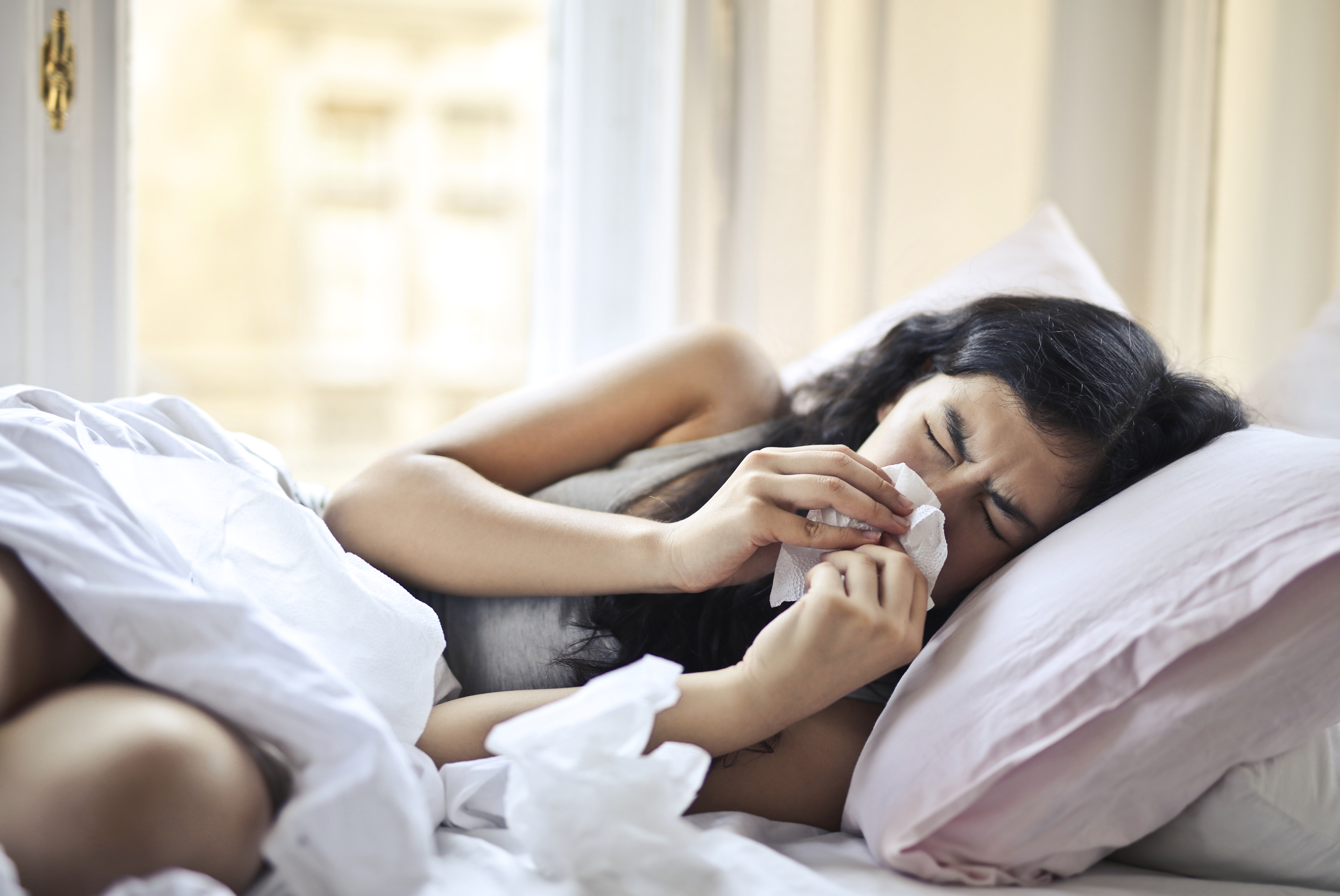
Woman in bed and blowing her nose. Credit: Unsplash
Government figures indicate that total number of people to die with coronavirus in UK hospital stands at 7,097 as of 5pm on Wednesday (7 April).
The aim of shutting parks and banning outdoor exercise is to prevent the coronavirus being spread further. Similar measures have already been taken in Spain and France.
Professor John Edmunds, of the London School of Hygiene and Tropical Medicine, has said that there are three possible ways coronavirus can be transmitted:
- Touching infected surfaces and then your face with unwashed hands
- From tiny particles that stay suspended in the air
- From droplets produced by people coughing and sneezing
“The first two of these routes would be reduced to virtually zero out of doors,” he told the Runner’s World.
“This leaves droplets, and as long as you keep a reasonable distance away from others, your risk will also be reduced to extremely low levels.”
Edmunds believes that banning people from going outdoors would “have a negligible impact on the epidemiology of the disease but a marked impact on people’s mental health and wellbeing.”
Prof Graham Medley, a pandemic modeller advising the government, has also warned that a prolonged lockdown risks causing more harm than the virus itself.
“This disease is so nasty that we had to suppress it completely,” he told the Times.
“Then we’ve kind of painted ourselves into a corner, because then the question will be, what do we do now?”
He noted the effect of lockdown measures on people’s income and mental health, children’s education and levels of domestic violence, child abuse and food poverty.
‘Under House Arrest’
On Sunday, Labour’s Angela Rayner told Sky News that: “It’s alright for people who have got a big house and huge back gardens to advocate for closing parks and banning outdoor exercise.
“But actually if you’re stuck in inadequate accommodation, you’ve got no back garden, you’ve got nowhere to go and you’re all on top of each other, quite literally, then I think people should do social distancing and should keep their distance but also be reasonable and proportionate about that,” she added.
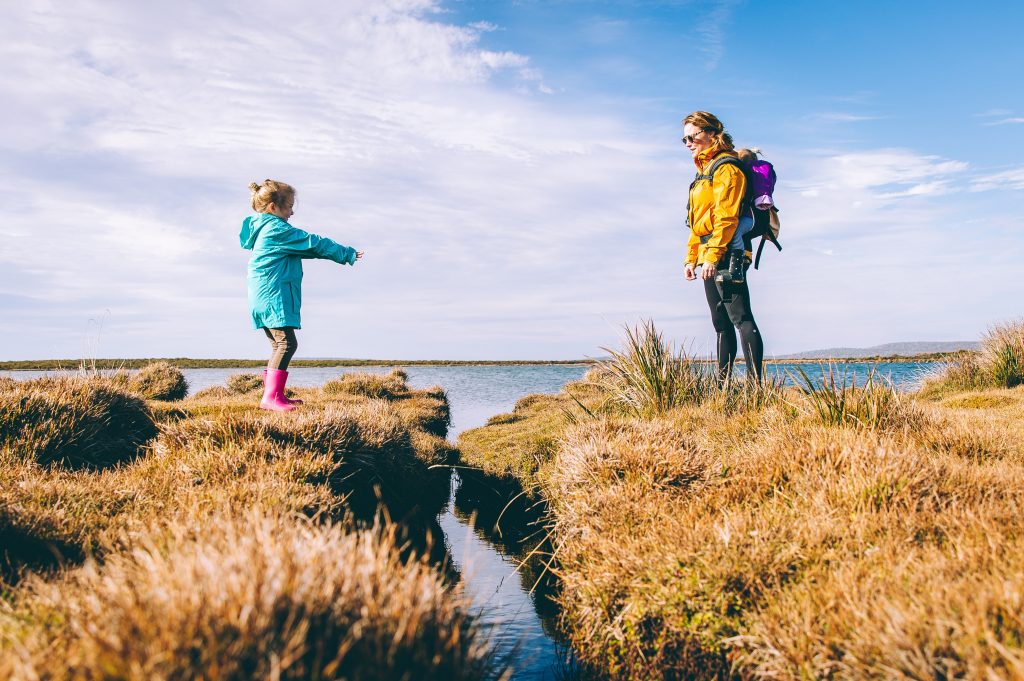
Credit: Unsplash
Campaigner Richard Bingley, who lives in east London, has spoken of being under “house arrest” after his local Victoria Park closed its doors to the public.
“We all support the lockdown to beat this awful virus,” he told the East London Advertiser.
“But we’re forced to walk dogs, jog and cycle into more compressed space with the park being closed.”
Tower Hamlets Council, which manages that park, has since announced that it will reopen over the bank holiday with new rules intended to keep visitors safe.
Hackney Council has urged visitors to north London’s Clissold Park to stick to the rules to ensure it can keep green spaces open.
Mark Forsyth, chairman of the Clissold Park User Group, told Each Other: “In an area like Stoke Newington, there is a huge number of people who have not got gardens.
“It is an incredibly important resource for their mental and physical wellbeing – to get out in the sunshine and fresh air or to get a break from people living on top of one another.”
People with disabilities may also suffer disproportionately from greater restrictions.
On Wednesday (8 April) the Welsh government made an exception to its legal limit on daily exercise and ban on driving to exercise after parents threatened legal action. Their son has an autism spectrum disorder which requires him to go outside more than once a day.
What about human rights?
Under Article 2 of the Convention on Human Rights (ECHR), the UK government and other public authorities have a legal obligation to take positive steps to protect people whose lives are at risk.
It is not an “absolute” obligation, which means the state may not always be able to fulfil it due to limited resources. For example, it may not have to provide life-saving drugs to everyone in all circumstances.
The government is taking actions to protect lives amid the coronavirus pandemic, including quarantine and isolation policies, but these are also interfering with our other rights – such as the right to liberty.
Our right to liberty can be lawfully interfered with on the grounds of protecting public health, provided the interference can be demonstrated as proportionate and necessary.
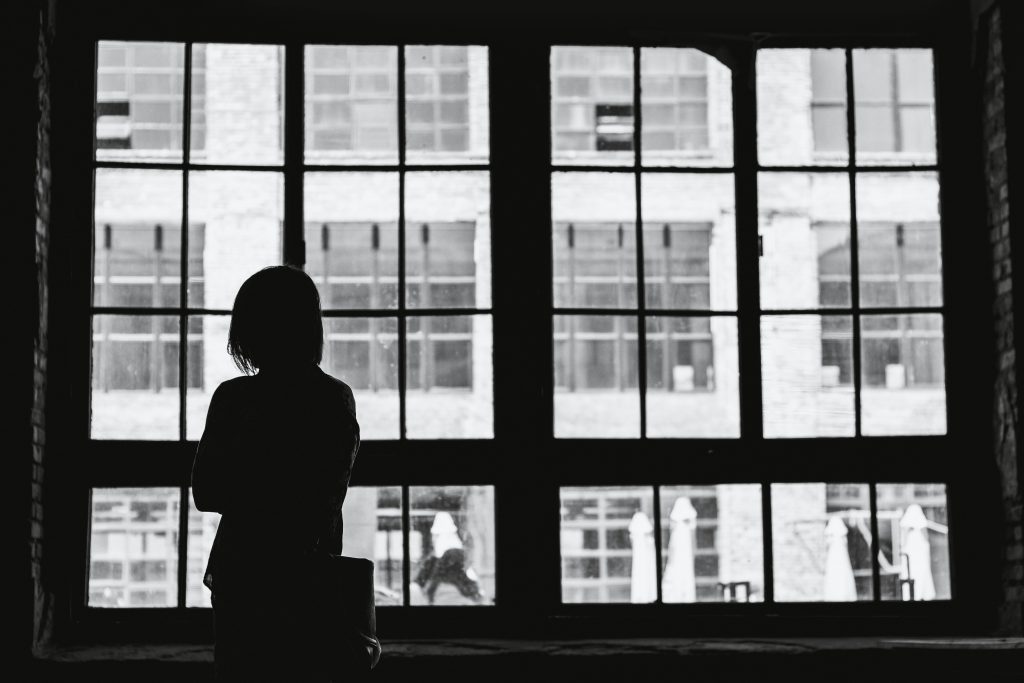
Credit: Unsplash
The European Court of Human Rights’ guidance recommends that prisoners should be granted “at least one hour of exercise every day in the open air”.
Dr Liora Lazarus, an Oxford University law professor specialising in human rights, told EachOther that this recommendation can provide a useful minimum requirement for ensuring the public has “dignified existence” amid a prolonged lockdown.
She highlighted how some governments, such as South Africa’s and Spain’s, have temporarily banned all outdoor exercise, but indicated the difficulties in effectively policing more nuanced restrictions.
It is possible the UK government could try to make the same argument for an outdoor exercise ban. Its approach so far has been to introduce increasingly restrictive measures amid continued reports that members of the public have been flouting advice.
Lazarus said: “If I were in a court of law, I would like to see that the [UK] government has considered other options. And if people are struggling from mental health – this needs to be taken into consideration.
“It is important our rights are considered at every stage of the lockdown.
“This [lockdown] has to be branded as a very exceptional measure. It is particularly onerous because we were not well prepared for [the pandemic]. If we had sufficient hospital beds, staff and equipment, we might not have needed such an extensive and long-running lockdown.
“In the future what we want to see is something that is much more freedom regarding. It is important for us not to think this is a precedent.
“It would make sense for parks to remain open with a limit on how many can go in.”
This has been echoed by Labour MP Harriet Harman, chairwoman of Parliament’s human rights committee, who called for parks to develop entry rotas rather than closing.

